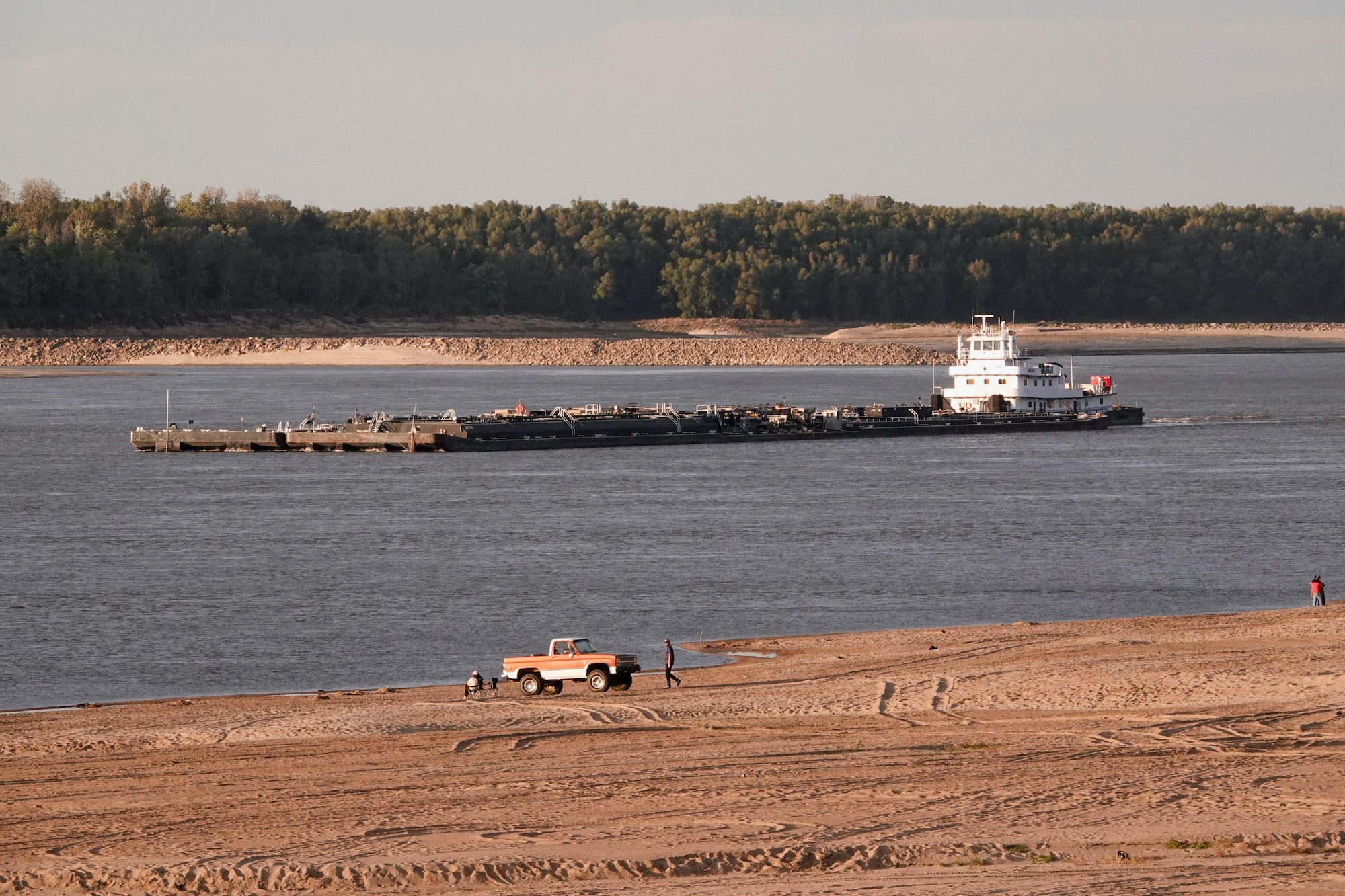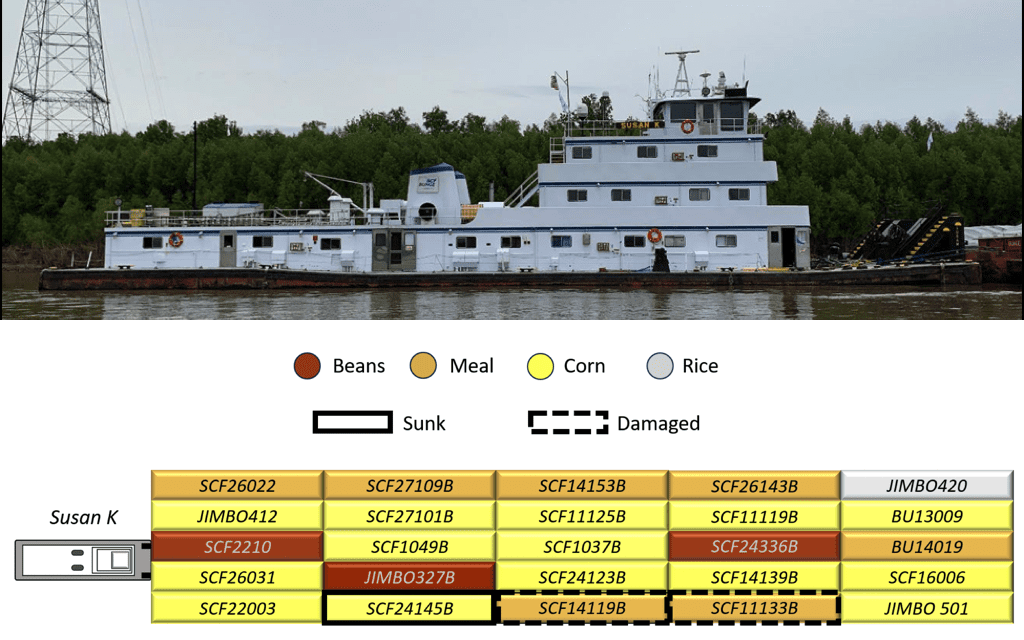The Mississippi River Basin is facing an emerging crisis as rapidly declining water levels threaten to restrict barge traffic during the peak harvest season, potentially disrupting critical agricultural exports and supply chains at the worst possible time.
Jon Davis, Chief Meteorologist at Everstream Analytics, warns that restrictions on barge traffic are likely to occur during the second week of October due to rapidly declining river levels, particularly affecting the transportation of Midwest corn and soybeans to New Orleans for global export.
“October is a critical month for barge transportation in the Mississippi River Basin. This is especially the case in the agricultural sector as the crops are harvested in the Midwest and transported mainly by barge to New Orleans,” Davis explains. These crops feed the U.S. export program to customers worldwide.
The timing couldn’t be worse as this marks the third consecutive year of disruption on the Mississippi. “Both last year and in 2023, shipping was virtually halted along the Mississippi River and other tributaries due to low water levels,” according to Davis.
At Cairo, Illinois, a critical gauge point, “the level has rapidly dropped to the ‘Low Level’ mark during the past few days. Hence, restrictions are imminent.” The decline is moving downstream and “will eventually lead to a decline in Memphis and all sections of the lower Mississippi Basin.”
Recent data shows river levels at Cairo dropped more than 3 feet in a week, to over 9 feet below the 10-year average. This is nearly identical to last year’s extremely low levels that disrupted barge traffic at the confluence of the Ohio and Mississippi Rivers. Meanwhile, Memphis has also dropped significantly, while New Orleans reporting its lowest river level in at least a decade.
While recent and upcoming rains could help stabilize river levels through early October, Davis notes this reprieve is brief: “Without it, barge traffic would have faced rapid and widespread shutdowns.” Everstream’s forecast indicates a total dry-out in the lower Mississippi Basin lasting into early October, potentially driving another sharp decline in river levels later in the month.
The restrictions on barges will likely impact both the weight allowed on individual barges and the number of barges able to be tethered together, further reducing shipping capacity. With harvest season underway and global shipping costs still elevated, another wave of restrictions could strain both inland logistics and international trade routes, particularly affecting bulk commodities like grain, fertilizer, and petroleum.
Editorial Standards · Corrections · About gCaptain

 Join The Club
Join The Club









